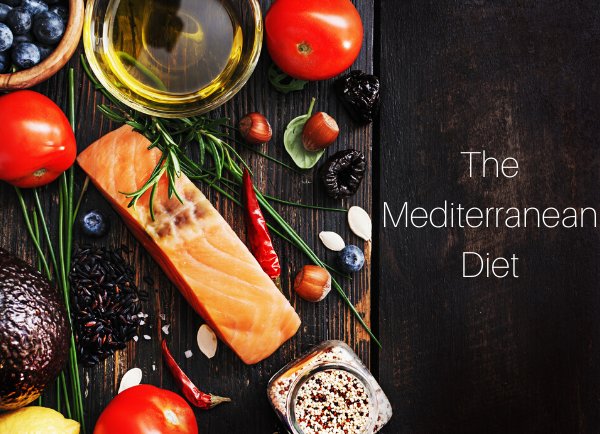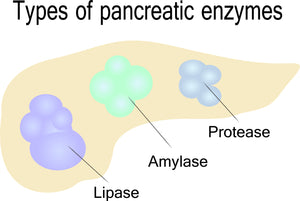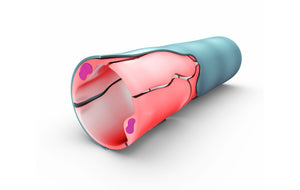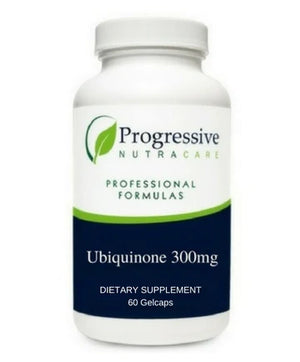Beginners Guide to the Mediterranean Diet

Trying out the Mediterranean diet can be a healthy way to lose weight, gain energy, and get many types of diseases under control. When you do it right, it can be fulfilling, tasty, and easy to prepare.
Based on the foods traditionally eaten by the cultures around the Mediterranean Sea, the diet forms around quality protein, high amounts of healthy unsaturated fats, and lots and lots of vegetables. There's also a wide variety of foods to choose from in the diet, with lots of great recipes.
How To Eat A Mediterranean Diet
With the many different kinds of foods, this guide gives you the basics to create your Mediterranean Diet. You can choose the foods you enjoy and try out ones you haven't thought of. Please use your good judgment to determine if a food that isn't listed here is something that would fit.
Meats & Fish
The Mediterranean Sea has many different types of fish. These fish are the primary protein staple for many of the cultures there. Pretty much any kind of fish and seafood falls into this category, even if it doesn't come from the Mediterranean Sea.
Most recommendations choose fattier fish such as tuna, salmon, sardines, and mackerel. They contain higher levels of omega-3 fatty acids that are better for your heart. Be sure to get wild-caught, sustainable fish, as some of the farmed fish often do not have healthy fats.
Poultry, lamb, and beef should be eaten in moderation. Choose varieties that are fed natural diets and raised organically. In place of the organic label, choose local, and speak to the farmers who raise the animals about how they raise them. Most of these cultures kept this type of meat for holidays and events.
Overall, meat and fish are not a large part of the Mediterranean diet. Meat tends to be an accent to the central part of the dish, which is vegetables. Stick to about 4oz servings and keep the fish to 2-3 times per week.
Veggies
All fruits and vegetables are acceptable on the Mediterranean diet. They comprise approximately three-quarters of all the food you should eat.
Fruits and vegetables include traditional vegetables such as broccoli, beans, squash, and tomatoes. Fruits include apples, figs, dates, and grapes. The list isn't limited to these vegetables, so you can choose any ones you like.
Again, stick to organically grown fruits and vegetables to avoid pesticides. In the Mediterranean diet, there's a big emphasis on seasonal fruits and vegetables. Choose the fruits and vegetables that are ripe in season and keep a wide variety of them in your diet.
Legumes are technically vegetables, and part of the Mediterranean diet. It's recommended that you go light on these, focusing more on other fruits and vegetables. But, you can use things like peas, beans, lentils, and chickpeas as lovely accents and additional flavorings to your meals.
Nuts and Seeds
Nuts and seeds add flavor and fats to your diet. Most nuts are acceptable on this diet, particularly the fattier ones like walnuts, almonds, and cashews. Stick to the general recommendation of a handful per day. Please note that peanuts are a legume – not a nut.
Herbs and Spices
The Mediterranean region grows many different types of herbs and spices. Most cultures rely heavily on these flavorings for health and aesthetic reasons. In many cases, these cultures use approximately a quarter cup of herbs and spices per person per day. This is nearly ten times as much as the typical American diet. Feel free to use as many herbs and spices as you choose to increase the flavor and health factors of your food.

Fats & Oils
The Mediterranean diet is rich in fats and oils, and the fish, nuts, and seeds provide many of these healthy fats. They also use natural vegetable oils, such as olive oil. Please note they do not use canola or generic vegetable oils as these oils are overly processed and provide poor flavor and nutrition.
In direct opposition to recommendations made over the past 50 years in the US, the Mediterranean diet focuses heavily on adding quality oils when cooking for flavor and health reasons. Feel free to use as much butter and oil as you choose. Just be careful not to add too much at once, or it could result in an upset stomach or loose stool.
Bread & Pastas
Although the iconic Italian-American meal is a plate of spaghetti with garlic bread as a side, you won't find that meal in any traditional Mediterranean family. Bread and pasta were part of some meals, but were 100% whole grain and often long-fermented varieties. That makes the bread much healthier than what we typically find today.
Most bread and pasta are eliminated in the Mediterranean diet. But, if you have an occasional side dish of pasta or bread made from 100% whole grains, it can make a tasty accent. However, it's often recommended that this not be added to your diet more than once a week.
Cheese and Yogurt
Cheese and yogurt are staples in most Mediterranean cultures. Because of the high temperature, milk did not remain fresh very long, and they became a way to preserve the milk for more extended storage. The cultures usually used goat or sheep milk, not cow's milk to make their cheese and yogurt.
Milk, cheese, and yogurt were at many meals, but an accent to the main fruits and vegetables. They often tended to be eaten earlier in the day, usually with breakfast or lunch. Additionally, cheese and yogurt contain lots of probiotic bacteria, which cause the fermentation process. Goat and sheep milk is higher in fats, making the cheese and yogurt more filling and satisfying; thus, people ate less with each serving.
If you choose to add cheese and yogurt to your diet, again, keep it as an accent to the main meal and make sure it contains the healthy probiotics.
Wine & Other Alcohol
Of course, wine and alcohol are part of the Mediterranean diet. Some of the best wines in the world come from Italy and Greece. However, that does not mean you can freely consume alcohol. Stick to the recommended amount of 4 oz of red wine per day.
We also recommend you avoid hard liquor and commercial beers. Fresh-made, local beer that still contains the yeasts and sediment are occasionally acceptable because they contain high amounts of B vitamins.
Other Foods & Treats
That leaves all the other processed food that you could choose. Like all other healthy diets, processed foods are not part of the Mediterranean diet. Because of the reliance on excessive amounts of sugars, chemicals, preservatives, and wheat, processed foods lack most vitamins and minerals and tend to push out other healthy foods.
Once you begin following the Mediterranean diet and are feeling healthy, rare indulgences in these unhealthy foods can be tolerated. Events such as a birthday party or holiday celebration may be made more enjoyable by using an indulgence without upsetting your main diet.
How Expensive is the Mediterranean Diet?
Relatively, the Mediterranean diet is not expensive. You will be spending a higher percentage of your food budget on fresh meats, fruits, and vegetables. However, you will save money by not purchasing unhealthy foods, processed junk, or other unnecessary ingredients. You will also save money by cooking much of your own food. Most Mediterranean recipes are simple and easy to prepare.
In the very beginning, as you get used to purchasing more fruits and vegetables, you may experience the sensation that you are spending more money on food. However, in the long run, you will be saving more money.
Also, if you look at the very long-term of your health care costs, the Mediterranean diet will save you significant amounts of money. It may save you prescription costs, doctor's visits, and higher insurance costs because you will stay healthier longer.
Do I Lose Weight On The Mediterranean Diet?
Most people tend to lose weight on the Mediterranean diet. Because of the reliance on a more significant amount of fruits and vegetables, the Mediterranean diet cuts back a person's sugar intake and processed food intake. These are two of the worst types of food a person can eat and cause the most weight gain.
It's not a particularly fast form of weight loss, such as low carb dieting. Your body will gradually let go of stored fat as you eat a healthier diet. Combined with healthy exercise, you may notice 2-5 pounds per month weight loss, depending on your body type.
Can The Mediterranean Diet Help With Inflammation and Depression?
Many doctors prescribe the Mediterranean diet because of its ability to help the body recover from specific health problems. Things like inflammation, digestive issues, and heart disease are shown to be improved using the Mediterranean diet.
Inflammation
Wheat and soy are two of the top foods that cause inflammation. They are greatly restricted, if not eliminated on the Mediterranean diet. Many of the herbs and spices used in typical Mediterranean dishes are also anti-inflammatory. Rosemary is used extensively and is excellent for the digestive system and arthritis.
Depression & Anxiety
The primary cause of depression and anxiety is an imbalance of serotonin and dopamine in the brain. But, this could be caused by many different things, so you should be checked by your doctor.
The Mediterranean diet reduces the amount of sugar a person consumes, which lowers the amount of insulin in a person's blood. Insulin artificially stimulates serotonin, making a person feel good after consuming sugary food. As the artificial stimulation ends, a person feels much worse, but the body can't recover as well. Because of this continuous back and forth between happiness and depression under the artificial means of the sugar, long-term depression can set in as the body can no longer regulate adequate levels of serotonin and dopamine naturally.
There's also a gut connection. From processed food, the sugars, chemicals, and wheat disrupt the probiotic bacteria in the gut. This influences hormone production and the immune system. Because the undesirable probiotics in your gut flourish and the good ones are suppressed, the body thinks it's under attack and makes you feel worse.
When you switch over to the Mediterranean diet, you may experience a few days of lethargy. However, as the body gets used to the healthier food, it feels better, and you begin to gain more energy, and your moods begin to stabilize.
Sleep
What you eat impacts your sleep. Healthier foods such as fruits and vegetables are easy to digest and provide the body with nutrients. This gives the body what it needs to function normally. Processed foods are heavier and disrupt our hormones, which can disturb sleep.
You may also be getting more healthy fats in your diet. Our hormones, including the melatonin that dictates sleep, are made of fats, the more healthy fats you have in your diet, the better your body can produce the right type of hormones to help you sleep.
Digestive Problems
Good food goes in, and your digestive system is happy. It's easier to digest foods that are primarily fruits and vegetables, with healthy fats, meats, and other good stuff. When you eliminate most of the wheat, soy, and processed food, things like gastric reflux, IBS, and other digestive problems diminish.
You will also be getting in more fiber, so your bowel movements may regulate, as well. For people who experience chronic constipation, the additional fiber helps move things along. For people experiencing diarrhea, the extra fiber helps bulk things up to make a better formed stool.
High Blood Pressure
Mediterranean diet is much lower in salt, which can help reduce blood pressure. As long as you're not adding too much salt to your home-cooked food, most people with high blood pressure should experience a decrease. The healthy fats help the heart, which can lower blood pressure.
Cholesterol Issues
High cholesterol is often a sign of inflammation within the body, so reducing inflammation, as we mentioned earlier, will help reduce your cholesterol levels. Also, several studies have shown that increasing the amount of healthy unsaturated fats in your diet helps reduce the strain on your heart, and that can reduce your cholesterol levels.
Cancer
Currently, there's no link between cancer and the Mediterranean diet. Some observations show that people who experience cancer and receive chemotherapy see a reduction in their symptoms when eating a diet filled with fruits and vegetables. That means eating the Mediterranean diet, which is mostly fruits and vegetables, may help reduce your symptoms.
On the other hand, the Mediterranean diet may reduce your chances of getting cancer because it removes many of the carcinogenic chemicals that are added to processed food.
Final Word
The Mediterranean diet is mostly fruits and vegetables with accents of meat, legumes, cheese with abundant fats, and an occasional treat of bread or pasta. Because of the wide variety of meal choices you have and the various combinations, you'll be able to find something that fits your taste. We recommend giving the Mediterranean diet a try if you're experiencing any health problems to start getting you on the right track.
- Nutracare Team







Comments 0